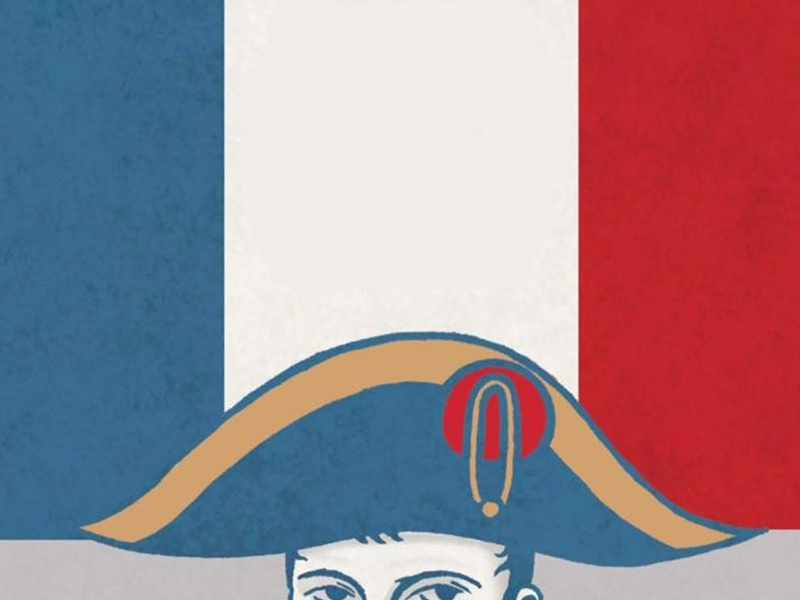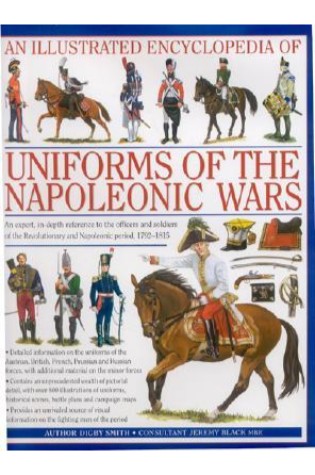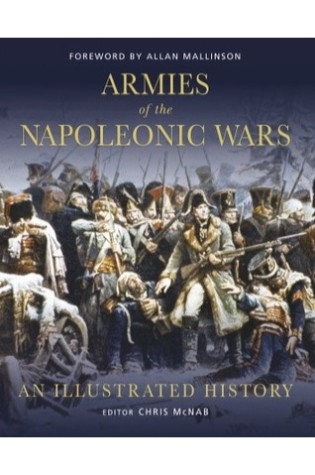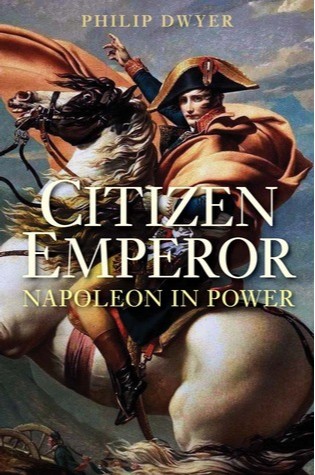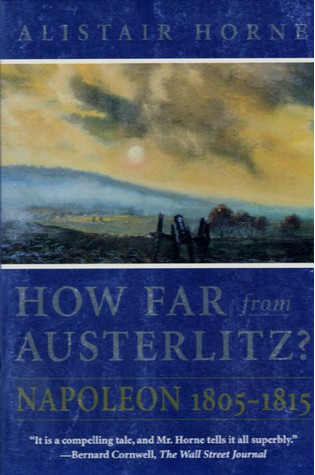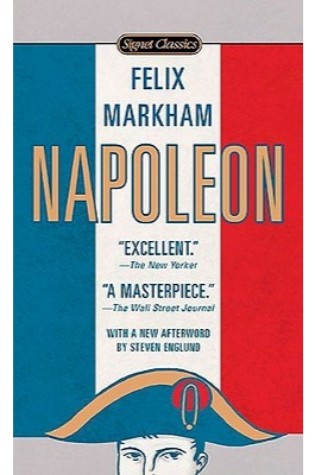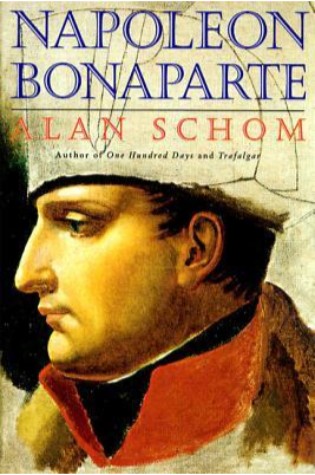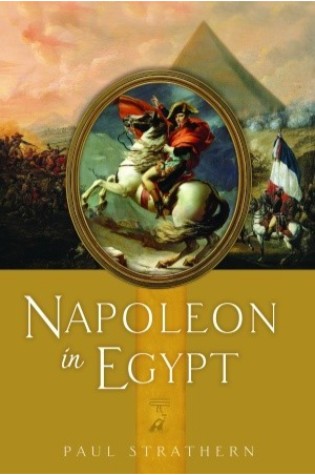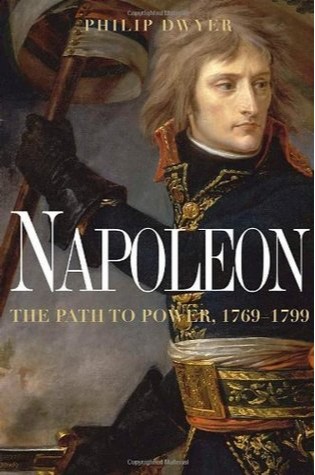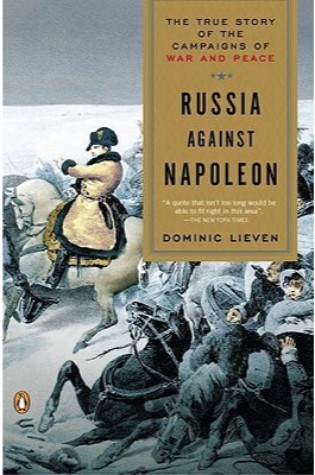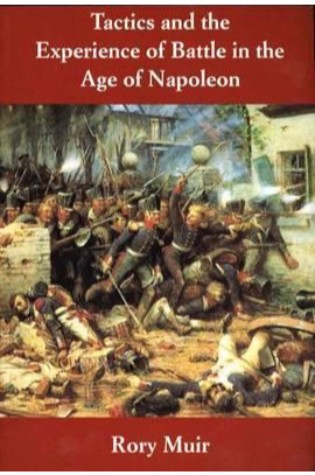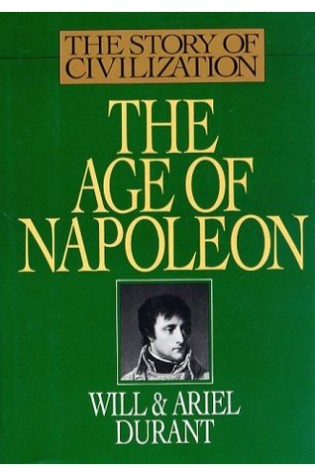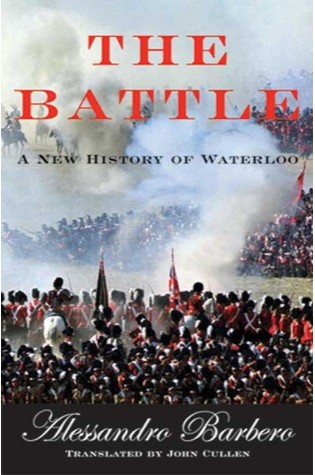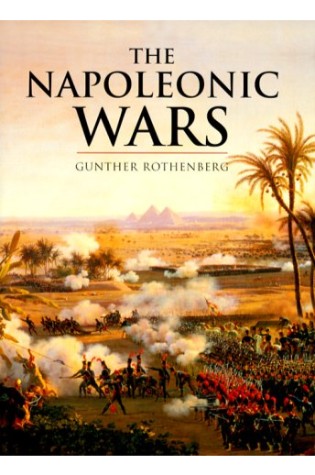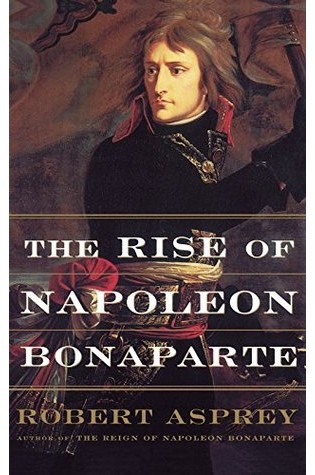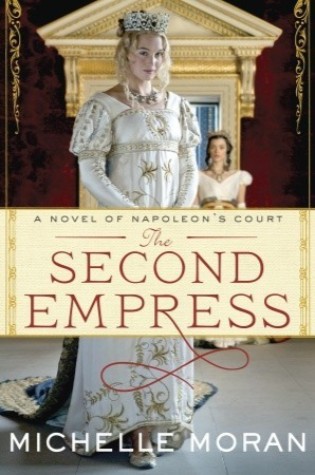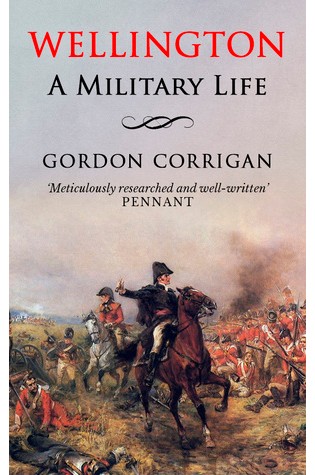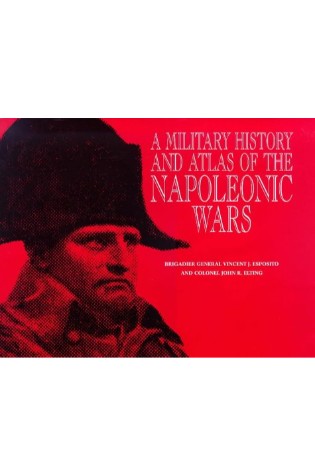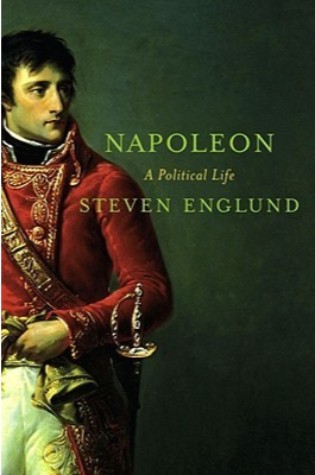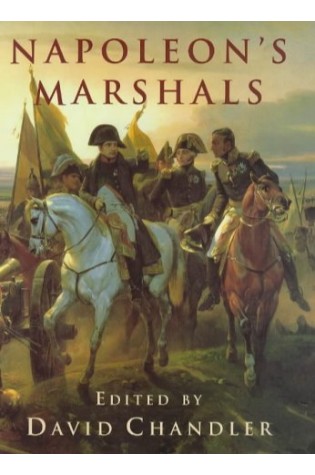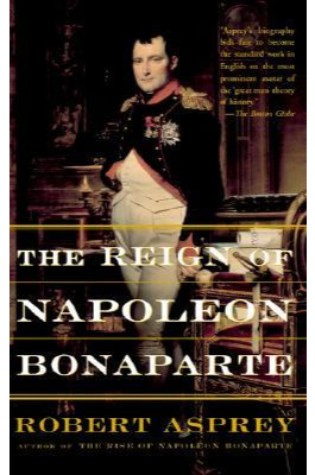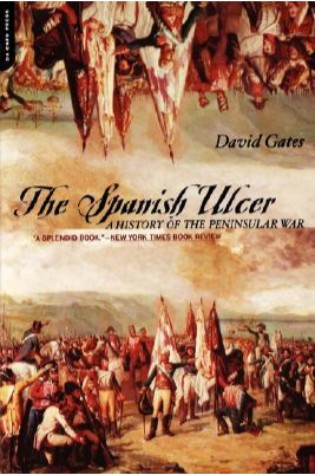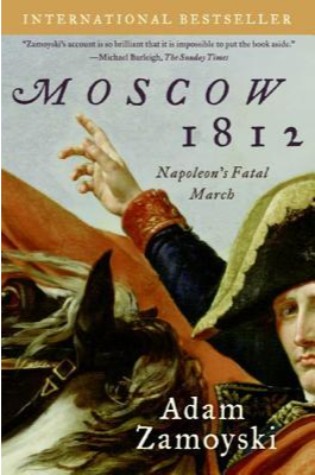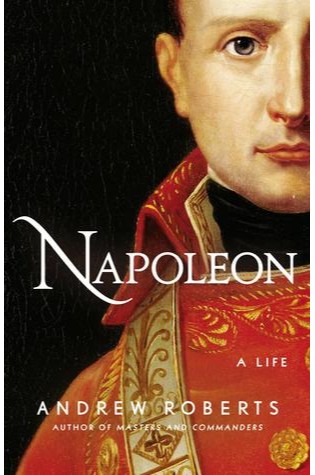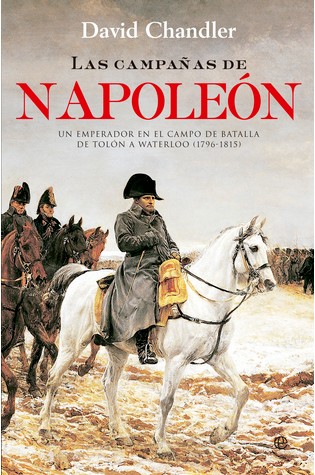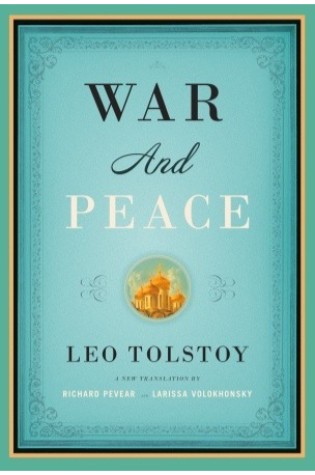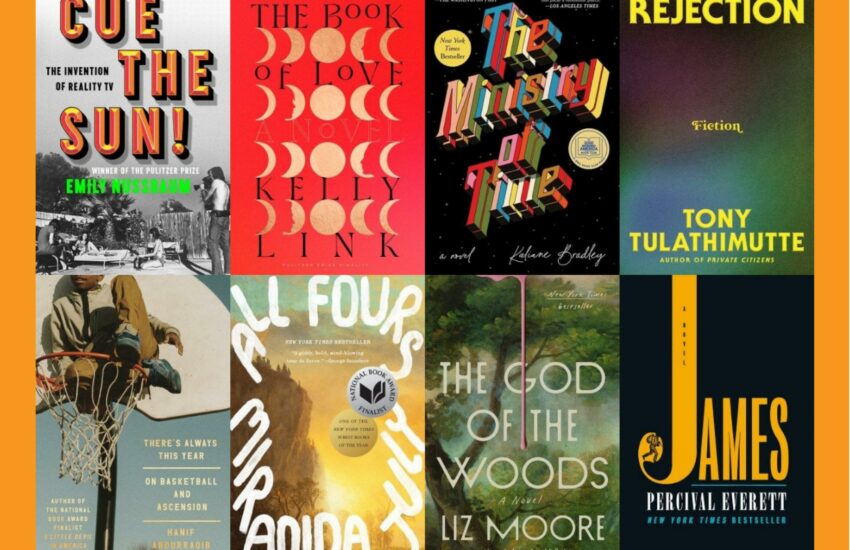The Best Books About Napoleon Bonaparte And The Napoleonic Wars
“What are the best books about Napoleon Bonaparte and the Napoleonic Wars?” We looked at 259 of the top Napoleon books, aggregating and ranking them so we could answer that very question!
The top 32 titles, all appearing on 2 or more “Best Napoleon” book lists, are ranked below by how many lists they appear on. The remaining 200+ titles, as well as the lists we used are in alphabetical order at the bottom of the page.
Happy Scrolling!
Top 32 Napoleon Bonaparte Books
32 .) An Illustrated Encyclopedia of Uniforms of the Napoleonic Wars by Digby Smith
- Thought Co.
- Wikipedia
This book brings a highly eventful period of European history to life, chrinicling the battles, campaigns and skirmishes of the conflict and the political triumphs and declines of the combatant forces.
31 .) Armies of the Napoleonic Wars: An illustrated history by Chris McNab
- Historum
- Wikipedia
The Napoleonic Wars saw almost two decades of brutal fighting, from the frozen wastelands of Russia to the wildness of the Peninsula; from Egypt’s Lower Nile to the bloody battlefield of Waterloo. Fighting took place on an unprecedented scale across Europe, and over the entire period of the wars Napoleon led his Grand Arm�e and his allies against almost every European nation, and against varying coalitions. This book provides a comprehensive guide to all the major armies of the Napoleonic Wars, of France, Britain, Austria, Prussia, Russia, Spain and Portugal. Covering the changes experienced by the armies over the period, the author details the organization, infantry, cavalry, and artillery of each. With stunning original artwork of the often glorious uniforms worn into battle, period illustrations or the equipment used, and photographs, this is a beautiful and in-depth study of the armies that fought in the Napoleonic campaigns.
30 .) Austerlitz 1805 by Christopher Duffy
- History Of War
- Wikipedia
Draws on original manuscripts in Austrian and British archives and recently published Russian documentation to provide a detailed chronicle of the battle that resulted in a great victory for Napoleon’s Grande Armee
29 .) Citizen Emperor: Napoleon in Power by Philip G. Dwyer
- Goodreads
- Wikipedia
In this second volume of Philip Dwyer’s authoritative biography on one of history’s most enthralling leaders, Napoleon, now 30, takes his position as head of the French state after the 1799 coup. Dwyer explores the young leader’s reign, complete with mistakes, wrong turns, and pitfalls, and reveals the great lengths to which Napoleon goes in the effort to fashion his image as legitimate and patriarchal ruler of the new nation. Concealing his defeats, exaggerating his victories, never hesitating to blame others for his own failings, Napoleon is ruthless in his ambition for power. Following Napoleon from Paris to his successful campaigns in Italy and Austria, to the disastrous invasion of Russia, and finally to the war against the Sixth Coalition that would end his reign in Europe, the book looks not only at these events but at the character of the man behind them. Dwyer reveals Napoleon’s darker sides—his brooding obsessions and propensity for violence—as well as his passionate nature: his loves, his ability to inspire, and his capacity for realizing his visionary ideas. In an insightful analysis of Napoleon as one of the first truly modern politicians, the author discusses how the persuasive and forward-thinking leader skillfully fashioned the image of himself that persists in legends that surround him to this day.
28 .) How Far From Austerlitz? Napoleon 1805 – 1815 by Alistair Horne
- Goodreads
- Thought Co.
The Battle of Austerlitz was Napoleon’s crowing victory. It was also the beginning of his downfall. In this book, historian Alistair Horne brilliantly chronicles the rise and fall of Napoleon, drawing parallels with other great leaders of the modern era.
27 .) Napoleon by Felix Markham
- Goodreads
- Questia
A magnificent reconstruction of Napoleon’s life and legend written by a distinguished Oxford scholar.
26 .) Napoleon Bonaparte by Alan Schom
- Goodreads
- Historum
A definitive biography of Bonaparte from his birth in Corsica to his death in exile on St Helena, this book examines all aspects of Bonaparte′s spectacular rise to power and his dizzying fall. It offers close examination of battlefield victories, personal torments, military genius, Bonaparte′s titanic ego and his relationships with the French government, Talleyrand, Wellington and Josephine. A consummate biography of a complex man.
25 .) Napoleon in Egypt by Paul Strathern
- Goodreads
“In 1798, Napoleon Bonaparte, only twenty-eight, mounted the most audacious military campaign of his already spectacular career. With 335 ships, 40,000 soldiers, and a collection of scholars, artists, scientists, and inventors, he set sail for Egypt to establish an Eastern empire in emulation of Alexander the Great. Like everything Napoleon ever attempted, it was a plan marked by unquenchable ambition, heroic romanticism, and not a little madness.
Napoleon saw himself as a liberator, freeing the Egyptians from the oppression of their Mameluke overlords. But while Napoleon thought his army would be welcomed as heroes, he tragically misunderstood Muslim culture and grossly overestimated the “gratitude” he could expect from those he’d come to save. Instead Napoleon and his men would face a grim war of attrition against an ad hoc army of Muslims led by the feared Murad Bey. Marching across seemingly endless deserts in the shadow of the pyramids, suffering extremes of heat and thirst, and pushed to the limits of human endurance, they would be plagued by mirages, suicides, and the constant threat of ambush. A crusade begun in honor and intended for glory would degenerate toward chaos and atrocity.”
24 .) Napoleon: A Biography by Andre Castelot
- Historum
- Rest Reviews
Castelot approaches the life of Bonaparte as a historian-reporter, following it step by step. This great biography is the most faithful portrait that has been written of this prestigious and controversial figure in history. The author displays a range of points of view to show the character as a man and as a politician and revolutionary.
23 .) Napoleon: The Path to Power by Philip G. Dwyer
- Goodreads
- Wikipedia
At just thirty years of age, Napoleon Bonaparte ruled the most powerful country in Europe. But the journey that led him there was neither inevitable nor smooth. This authoritative biography focuses on the evolution of Napoleon as a leader and debunks many of the myths that are often repeated about him—sensational myths often propagated by Napoleon himself. Here, Philip Dwyer sheds new light on Napoleon’s inner life—especially his darker side and his passions—to reveal a ruthless, manipulative, driven man whose character has been disguised by the public image he carefully fashioned to suit the purposes of his ambition.
22 .) Rites of Peace: The Fall of Napoleon and the Congress of Vienna by Adam Zamoyski
- Goodreads
- Thought Co.
Eager to negotiate a workable and lasting peace, the major powers—Britain, Austria, Prussia, and Russia—along with a host of lesser nations, began a series of committee sessions in Vienna: an eight-month-long carnival that combined political negotiations with balls, dinners, artistic performances, hunts, tournaments, picnics, and other sundry forms of entertainment for the thousands of aristocrats who had gathered in the Austrian capital. Although the Congress of Vienna resulted in an unprecedented level of stability in Europe, the price of peace would be high. Many of the crucial questions were decided on the battlefield or in squalid roadside cottages amid the vagaries of war. And the proceedings in Vienna itself were not as decorous as is usually represented.
21 .) Russia Against Napoleon: The Battle for Europe, 1807 to 1814 by Dominic Lieven
- Goodreads
- Thought Co.
In the summer of 1812 Napoleon, the master of Europe, marched into Russia with the largest army ever assembled, confident that he would sweep everything before him. Yet less than two years later his empire lay in ruins, and Russia had triumphed. This is the first history to explore in depth Russia’s crucial role in the Napoleonic Wars, re-creating the epic battle between two empires as never before. Dominic Lieven writes with great panache and insight to describe from the Russians’ viewpoint how they went from retreat, defeat and the burning of Moscow to becoming the new liberators of Europe; the consequences of which could not have been more important. Ultimately this book shows, memorably and brilliantly, Russia embarking on its strange, central role in Europe’s existence, as both threat and protector – a role that continues, in all its complexity, into our own lifetimes.
20 .) Salamanca 1812 – Wellington’s Year of Victories
- History Of War
- Wikipedia
1812 was the year in which the Peninsular War swung in the favor of the combined forces of the British, the Spanish and the Portuguese. This was the result of a series of victories over the French gained by the allied armies under Wellington, and this is the subject of Peter Edwards’s compelling new history. The year began with Wellington launching a series of raids in Estramadura to distract French attention from preparations for an assault on Ciudad Rodrigo, which was taken in late-January. There followed the capture of Badajoz and the advance on Salamanca, which was captured after a ten-day siege. The Battle of Salamanca, on 22 July, saw some 50,000 French troops arrayed against a similar number of allies. Using ground astutely, Wellington gained a crushing victory, inflicting over 14,000 French casualties. Although there was a rebuff at Burgos later in the year, Wellington’s forces were firmly on the march to victory in the Iberian Peninsula. Peter Edwards uses an excellent range of sources to bring to life this pivotal year in the Peninsular War. His work offers a fascinating insight into the strategy, the command decisions and the experience of combat 200 years ago.
19 .) Swords around a Throne: Napoleon’s Grande Armee by John R. Elting
- Goodreads
- Wikipedia
This authoritative, comprehensive, and enthralling book describes and analyzes Napoleon’s most powerful weaponthe Grande Armée which at its peak numbered over a million soldiers. Elting examines every facet of this incredibly complex human machine: its organization, command system, logistics, weapons, tactics, discipline, recreation, mobile hospitals, camp followers, and more. From the army’s formation out of the turmoil of Revolutionary France through its swift conquests of vast territories across Europe to its legendary death at Waterloo, this book uses excerpts from soldiers’ letters, eyewitness accounts, and numerous firsthand details to place the reader in the boots of Napoleon’s conscripts and generals. In Elting’s masterful hands the experience is truly unforgettable.
18 .) Tactics and the Experience of Battle in the Age of Napoleon by Rory Muir
- Thought Co.
- Wikipedia
What was it like to be a soldier on a Napoleonic battlefield? What happened when cavalry regiments charged directly at one another? What did the generals do during battle? Drawing on memoirs, diaries, and letters of the time, this dramatic book explores what actually happened in battle and how the participants’ feelings and reactions influenced the outcome. Rory Muir focuses on the dynamics of combat in the age of Napoleon, enhancing his analysis with vivid accounts of those who were there―the frightened foot soldier, the general in command, the young cavalry officer whose boils made it impossible to ride, and the smartly dressed aide-de-camp, tripped up by his voluminous pantaloons.
17 .) The Age of Napoleon by Will Durant
- Goodreads
- Wikipedia
A comprehensive, integral account of European life, society, politics, arts, science, philosophy, economics, manners, and morals of the epoch
16 .) The Battle: A New History of Waterloo by Alessandro Barbero
- Goodreads
- Wikipedia
“At Waterloo, some 70,000 men under Napoleon and an equal number under Wellington faced one another in a titanic and bloody struggle. In the end, as John Keegan notes, contemporaries felt that Napoleon’s defeat had “”reversed the tide of European history.”” Even 190 years later, the name Waterloo resounds.
Italian historian Alessandro Barbero’s majestic new account stands apart from previous British and French histories by giving voice to all the nationalities that took part. Invoking the memories of British, French, and Prussian soldiers, Barbero meticulously re-creates the conflict as it unfolded, from General Reille’s early afternoon assault on the chateau of Hougoumont, to the desperate last charge of Napoleon’s Imperial Guard as evening settled in. From privates to generals, Barbero recounts individual miracles and tragedies, moments of courage and foolhardiness, skillfully blending them into the larger narrative of the battle’s extraordinary ebb and flow. One is left with indelible images: cavalry charges against soldiers formed in squares; the hand-to-hand combat around farmhouses; endless cannon balls and smoke. And, finally, a powerful appreciation of the inevitability and futility of war.”
15 .) The Napoleonic Wars by Gunther E. Rothenberg
- Goodreads
- Historum
This vividly illustrated history of the Napoleonic Wars documents the wars’ origins in the French Revolution, narrates Napoleon’s victories at Austerlitz and Jena, and concludes with his defeats in the Iberian peninsula, Russia, and finally at Waterloo. Author Gunther E. Rothenberg describes how Napoleon transformed interstate warfare into a system of relentless conquest, creating a military superpower on a scale not seen since the Roman Empire. Though eventually defeated, Napoleon’s model of conquest set a pattern that was to be revived by modern totalitarian states, and their opponents.
14 .) The Paris Vendetta by Steve Berry
- Dig Books
- Goodreads
“When Napoleon Bonaparte died in exile in 1821, he took to the grave a powerful secret. As general and emperor, he had stolen immeasurable riches from palaces, national treasuries, and even the Knights of Malta and the Vatican. In his final days, his British captors hoped to learn where the loot lay hidden. But he told them nothing, and in his will he made no mention of the treasure. Or did he?
Former Justice Department operative Cotton Malone isn’t looking for trouble when it comes knocking at his Copenhagen bookshop. Actually, it breaks and enters in the form of an American Secret Service agent with a pair of assassins on his heels. Malone has his doubts about the anxious young man, but narrowly surviving a ferocious firefight convinces him to follow his unexpected new ally.
“
13 .) The Rise of Napoleon Bonaparte by Robert B. Asprey
- Goodreads
- Historum
Ever since 1821, when he died at age fifty-one on the forlorn and windswept island of St. Helena, Napoleon Bonaparte has been remembered as either demi-god or devil incarnate. In The Rise of Napoleon Bonaparte, the first volume of a two-volume cradle-to-grave biography, Robert Asprey instead treats him as a human being. Asprey tells this fascinating, tragic tale in lush narrative detail. The Rise of Napoleon Bonaparte is an exciting, reckless thrill ride as Asprey charts Napoleon’s vertiginous ascent to fame and the height of power. Here is Napoleon as he was-not saint, not sinner, but a man dedicated to and ultimately devoured by his vision of himself, his empire, and his world.
12 .) The Second Empress: A Novel of Napoleon’s Court by Michelle Moran
- Dig Books
- Goodreads
“After the bloody French Revolution, Emperor Napoleon’s power is absolute. When Marie-Louise, the eighteen year old daughter of the King of Austria, is told that the Emperor has demanded her hand in marriage, her father presents her with a terrible choice: marry the cruel, capricious Napoleon, leaving the man she loves and her home forever, or say no, and plunge her country into war.
Marie-Louise knows what she must do, and she travels to France, determined to be a good wife despite Napoleon’s reputation. But lavish parties greet her in Paris, and at the extravagant French court, she finds many rivals for her husband’s affection, including Napoleon’s first wife, Joséphine, and his sister Pauline, the only woman as ambitious as the emperor himself. Beloved by some and infamous to many, Pauline is fiercely loyal to her brother. She is also convinced that Napoleon is destined to become the modern Pharaoh of Egypt. Indeed, her greatest hope is to rule alongside him as his queen—a brother-sister marriage just as the ancient Egyptian royals practiced. Determined to see this dream come to pass, Pauline embarks on a campaign to undermine the new empress and convince Napoleon to divorce Marie-Louise. “
11 .) Vittoria 1813
- History Of War
- Wikipedia
Osprey’s Campaign title for the Battle of Vittoria during the Napoleonic Wars (1799-1815). Despite Wellington’s success against Marmont’s army at Salamanca in July, the year of 1812 ended in bitter disappointment for the British. However, a year later Wellington’s series of brilliant manoeuvres threw the French onto the defensive on all fronts, culminating in the final victory at Vittoria: 90,000 men and 90 guns attacking in four mutually supporting columns. The French centre gave way and both flanks were turned, their army finally breaking in flight towards Pamplona. Any French hopes of maintaining their position in the Peninsular were crushed forever. On 7 October the British set foot on the ‘sacred soil’ of’ Napoleon’s France.
10 .) Wellington: A Military Life by Gordon Corrigan
- History Of War
- Wikipedia
The Duke of Wellington, the most successful of British commanders, set a standard by which all subsequent British generals have been measured. His defeat of Napoleon at Waterloo in 1815 crowned a reputation first won in India at Assaye and then confirmed during the Peninsular War, where he followed up his defence of Portugal by expelling the French from Spain. Gordon Corrigan, himself an ex-soldier, examines his claims to greatness. Wellington was in many ways the first modern general, combining a mastery of logistics with an ability to communicate and inspire. He had to contend not only with enemy armies but also with his political masters and an often sceptical public at home.
9 .) A Military History and Atlas of the Napoleonic Wars by V. J. Esposito
- Historum
- Thought Co.
- Wikipedia
This historical atlas is a seminal work on t he Napoleonic Wars and provides a comprehensive overview of the battles and of Napoleon Bonaparte between 1796 and 1815. The large maps allow readers to follow the course, time and terrain of any campaign. ‘
8 .) Napoleon: A Political Life by Steven Englund
- Goodreads
- Historum
- Wikipedia
This sophisticated and masterful biography brings new and remarkable analysis to the study of modern history’s most famous general and statesman. As Englund charts Napoleon’s dramatic rise and fall–from his Corsican boyhood, his French education, his astonishing military victories and no less astonishing acts of reform as First Consul (1799-1804) to his controversial record as Emperor and, finally, to his exile and death–he explores the unprecedented power Napoleon maintains over the popular imagination.
7 .) Napoleon’s Marshals by David G. Chandler
- Goodreads
- History Of War
- Wikipedia
Few military careers have rivalled the drama of those 26 officers who became Napoleon’s marshals. First published in 1987, and written by a team of military historians, this text records these individual careers with verve and accuracy.
6 .) The Reign of Napoleon Bonaparte by Robert B. Asprey
- Goodreads
- Historum
Robert Asprey completes his definitive, two-volume biography with an intimate, fast-paced look at Napoleon’s daring reign and tragic demise with more of the personality and passion that marked the first volume of this cradle to the grave biography. In The Rise of Napoleon Bonaparte, Asprey showed us that Napoleon was not the father of chaos, but rather an heir to it. In this companion volume, we see Napoleon struggling to subdue the turmoil. We peer over Napoleon’s shoulder as he solidifies his growing empire through a series of marriages, military victories, and shrewd diplomatic manipulations. We watch Napoleon lose control of his empire, plot his return from Elba, rally peasants in his march to Paris, endure defeat at Waterloo and suffer exile and a lonely death on the island of St. Helena. Robert Asprey tells this fascinating, tragic tale in lush narrative detail.
5 .) The Spanish Ulcer: A History of the Peninsular War by David Gates
- Goodreads
- Thought Co.
- Wikipedia
The Peninsular War in Spain and Portugal was the most bitterly fought contest of nineteenth-century Europe. From 1808 to 1814, Spanish regulars and guerrillas, along with British forces led by Sir John Moore and the duke of Wellington, battled Napoleon’s troops across the length and breadth of the Iberian Peninsula. Napoleon considered the war so insignificant that he rarely bothered to bring to it his military genius, relying instead on his marshals and simultaneously launching his disastrous Russian campaign of 1812. Yet the Peninsular War was to end with total defeat for the French, and in 1813 Wellington’s army crossed the Pyrenees into mainland France. What Napoleon had called “the Spanish ulcer” ultimately helped bring down the French empire. Michael Howard of Oxford University hailed this book as “a major achievement…the first brief and balanced account of the war to have appeared within our generation.” Illustrated with over a hundred maps and fifty contemporary drawings and paintings, this is a richly detailed history of a crucial period in history that resonates powerfully to this day—and figures prominently in Bernard Cornwell’s internationally acclaimed novels of the Napoleonic era.
4 .) Moscow 1812: Napoleon’s Fatal March by Adam Zamoyski
- Historum
- Thought Co.
- Dig Books
- Goodreads
- Signature
Napoleon dominated nearly all of Europe by 1810, largely succeeding in his aim to reign over the civilized world. But Britain eluded him. To conquer the island nation, he needed Russia’s Tsar Alexander’s help. The Tsar refused, and Napoleon vowed to teach him a lesson by intimidation and force. The ensuing invasion of Russia, during the frigid winter of 1812, would mark the beginning of the end of Napoleon’s empire. Although his army captured Moscow after a brutal march deep into hostile territory, it was a hollow victory for the demoralized troops. Napoleon’s men were eventually turned back, and their defeat was a momentous turning point in world affairs. Dramatic, insightful, and enormously absorbing, Moscow 1812 is a masterful work of history.
3 .) Napoleon: A Life by Andrew Roberts
- Dig Books
- Goodreads
- Quora
- Rest Reviews
- Signature
Andrew Roberts’s Napoleon is the first one-volume biography to take advantage of the recent publication of Napoleon’s thirty-three thousand letters, which radically transform our understanding of his character and motivation. At last we see him as he was: protean multitasker, decisive, surprisingly willing to forgive his enemies and his errant wife Josephine. Like Churchill, he understood the strategic importance of telling his own story, and his memoirs, dictated from exile on St. Helena, became the single bestselling book of the nineteenth century.
2 .) The Campaigns of Napoleon by David G. Chandler
- Dig Books
- Goodreads
- Historum
- Thought Co.
- Wikipedia
The Campaigns of Napoleon is an exhaustive analysis and critique of Napoleon’s art of war as he himself developed and perfected it in the major military campaigns of his career. Napoleon disavowed any suggestion that he worked from formula (“Je n’ai jamais eu un plan d’opérations”), but military historian David Chandler demonstrates this was at best only a half-truth. To be sure, every operation Napoleon conducted contained unique improvisatory features. But there were from the first to the last certain basic principles of strategic maneuver and battlefield planning that he almost invariably put into practice. To clarify these underlying methods, as well as the style of Napoleon’s fabulous intellect, Mr. Chandler examines in detail each campaign mounted and personally conducted by Napoleon, analyzing the strategies employed, revealing wherever possible the probable sources of his subject’s military ideas.
1 .) War and Peace by Leo Tolstoy
- Dig Books
- Goodreads
- Signature
- Thought Co.
Tolstoy’s epic masterpiece intertwines the lives of private and public individuals during the time of the Napoleonic wars and the French invasion of Russia. The fortunes of the Rostovs and the Bolkonskys, of Pierre, Natasha, and Andrei, are intimately connected with the national history that is played out in parallel with their lives. Balls and soirees alternate with councils of war and the machinations of statesmen and generals, scenes of violent battles with everyday human passions in a work whose extraordinary imaginative power has never been surpassed. The prodigious cast of characters, seem to act and move as if connected by threads of destiny as the novel relentlessly questions ideas of free will, fate, and providence. Yet Tolstoy’s portrayal of marital relations and scenes of domesticity is as truthful and poignant as the grand themes that underlie them.
The 200+ Additional Best Napoleonic War Books
| # | Books | Authors | Lists |
| (Titles Appear On 1 List Each) | |||
| 33 | 1809 Thunder on the Danube: Napoleon’s Defeat of the Habsburgs, Volume I: Abensberg | History Of War | |
| 34 | 1809 Thunder on the Danube: Napoleon’s Defeat of the Habsburgs, Volume II: Aspern | History Of War | |
| 35 | 1809 Thunder on the Danube: Napoleon’s Defeat of the Habsburgs, Volume III: Wagram and Znaim | History Of War | |
| 36 | 1812: Napoleon’s Invasion of Russia | Paul Britten Austin | Thought Co. |
| 37 | A Dorset Rifleman: The Autobiography of Sgt | History Of War | |
| 38 | A History of the Peninsular War | Wikipedia | |
| 39 | A Waterloo Hero: The Reminiscences of Friedrich Lindau | History Of War | |
| 40 | Albuera 1811, The Bloodiest Battle of the Peninsular War | History Of War | |
| 41 | Alone Among Men | Marjorie S. Coryn | Shannon Selin |
| 42 | Armies of the Napoleonic Era | Wikipedia | |
| 43 | Aspern and Wagram, 1809 | History Of War | |
| 44 | Atlas Of The Napoleonic Wars | Vincent J Esposito and Robert Elting | Historum |
| 45 | Aubrey-Maturin series | ||
| 46 | Austerlitz: The Battle of the Two Emperors | Questia | |
| 47 | Badajoz, 1812: Wellingtons Bloodiest Siege | History Of War | |
| 48 | Battle Tactics of Napoleon and His Enemies. | Wikipedia | |
| 49 | Betsy and the Emperor | Anne Whitehead | Shannon Selin |
| 50 | Black Powder War | Naomi Novik | Goodreads |
| 51 | Black Rock | Louise Hoole | Shannon Selin |
| 52 | Blücher’s Army 1813–1815 | Wikipedia | |
| 53 | Bonaparte in Egypt | J. Christopher Herold | Questia |
| 54 | Borodino 1812 | History Of War | |
| 55 | Borodino and the War of 1812 | Wikipedia | |
| 56 | Britain Against Napoleon: The Organization of Victory, 1793-1815 | Roger Knight | Thought Co. |
| 57 | British Infantry of the Napoleonic Wars | Wikipedia | |
| 58 | Bussaco 1810 | Wikipedia | |
| 59 | Campaigns of Napoleon | Chandler, | Historum |
| 60 | Cassell’s History of Warfare | Historum | |
| 61 | Corunna 1809 | History Of War | |
| 62 | Courtship | Command: A Story of Napoleon at Play | Shannon Selin |
| 63 | Death before Glory! The British Soldier in the West Indies in the French Revolutionary and Napoleonic Wars 1793-1815 | History Of War | |
| 64 | Decline and Fall of Napoleon’s Empire – How the Emperor Self-Destructed | History Of War | |
| 65 | Defeat: Napoleon’s Russian Campaign | Philippe-Paul de Ségur | Goodreads |
| 66 | Désirée | Annemarie Selinko | Goodreads |
| 67 | Dictionary of Battles and Sieges | Wikipedia | |
| 68 | Dictionary of the Napoleonic Wars | Wikipedia | |
| 69 | Die Hard! | Wikipedia | |
| 70 | EggMuhl 1809 | History Of War | |
| 71 | Encyclopedia of the Age of Imperialism, 1800–1914 | Wikipedia | |
| 72 | English Battles and Sieges in The Peninsula: Extracted from his ‘Peninsula War’ | Wikipedia | |
| 73 | Fallen Eagle: How the Royal Navy Captured Napoleon | History Of War | |
| 74 | Fighting Ships: Ships of the Line 1793–1815 | Wikipedia | |
| 75 | Fighting Techniques of the Napoleonic Age 1792~1815 | Wikipedia | |
| 76 | Flags and Standards of the Napoleonic Wars | Wikipedia | |
| 77 | Folk-Tales of Napoleon: Napoleonder and The Napoleon of the People | Alexander Amphiteatrof and Honoré de Balzac | Shannon Selin |
| 78 | For the King | Catherine Delors | Goodreads |
| 79 | Fortresses of the Peninsular 1808–14 | Wikipedia | |
| 80 | Forty Centuries Look Down: A Biographical Novel of Napoleon | Frederick Britten Austin | Shannon Selin |
| 81 | French Napoleonic Infantry Tactics 1792–1815 | Wikipedia | |
| 82 | Fuentes de Oñoro 1811 | Wikipedia | |
| 83 | Gentlemen’s Sons | Wikipedia | |
| 84 | Great Generals of the Napoleonic Wars and their Battles 1805–1815 | Wikipedia | |
| 85 | His Majesty’s Dragon | Naomi Novik | Goodreads |
| 86 | Historical Atlas of the Napoleonic Era | Wikipedia | |
| 87 | History of the War in the Peninsula and in the South of France from the Year 1807 to the Year 1814 | Wikipedia | |
| 88 | Imperial Bayonets | George Nafziger | Thought Co. |
| 89 | In the Words of Napoleon – The Emperor Day by Day | History Of War | |
| 90 | Jena | History Of War | |
| 91 | Jonathan Strange & Mr Norrell | Susanna Clarke | Goodreads |
| 92 | La Grande Armée | Wikipedia | |
| 93 | Le Fils de l’aigle, Napoléon II [Napoleon and His Son] | Pierre Nezelof | Shannon Selin |
| 94 | Leipzig 1813: The Battle of the Nations | History Of War | |
| 95 | Madame Casanova | Gaby Von Schönthan | Shannon Selin |
| 96 | Marching With Sharpe | Wikipedia | |
| 97 | Marengo 1800 | History Of War | |
| 98 | Military Dress of the Peninsular War 1804–1814 | Wikipedia | |
| 99 | My Bonny Light Horseman: Being an Account of the Further Adventures of Jacky Faber, in Love and War | L.A. Meyer | Goodreads |
| 100 | My Brother Napoleon: The Confessions of Caroline Bonaparte | Frank W. Kenyon | Shannon Selin |
| 101 | Naples and Napoleon: Southern Italy and the European Revolutions (1780-1860) | John A. Davis | Questia |
| 102 | Napoleon | Alan Forrest | Goodreads |
| 103 | Napoleon | Vincent Cronin | Goodreads |
| 104 | Napoleon | David G Chandler | Historum |
| 105 | Napoleon | Georges Lefebvre | Questia |
| 106 | Napoleon | Emil Ludwig, Eden Paul, Cedar Paul | Quora |
| 107 | Napoleon | Paul Johnson | Signature |
| 108 | Napoleon | Wikipedia | |
| 109 | Napoleon | Rest Reviews | |
| 110 | Napoleon (Profiles in Power) | Wikipedia | |
| 111 | Napoleon against Great Odds: The Emperor and the Defenders of France, 1814 | Ralph Ashby | Questia |
| 112 | Napoleon Against Himself: A Psychobiography | Wikipedia | |
| 113 | Napoleon and Blücher: An Historical Novel | Luise Mühlback | Shannon Selin |
| 114 | Napoleon and His Marshals | A G Macdonell | Thought Co. |
| 115 | Napoleon and the Queen of Prussia: An Historical Novel | Luise Mühlback | Shannon Selin |
| 116 | Napoleon and the World War of 1813: Lessons in Coalition Warfighting | Wikipedia | |
| 117 | Napoleon and Wellington: The Long Duel | Andrew Roberts | Goodreads |
| 118 | Napoleon Bonaparte and the Legacy of the French Revolution | Martyn Lyons | Signature |
| 119 | Napoleon Bonaparte: A Biography | Rest Reviews | |
| 120 | Napoleon Bonaparte: An Intimate… | Rest Reviews | |
| 121 | Napoleon Symphony | Anthony Burgess | Shannon Selin |
| 122 | Napoleon the First: A Biography | Wikipedia | |
| 123 | Napoleon The Great | Andrew Roberts | Quora |
| 124 | Napoleon, a biography | Frank McLynn | Historum |
| 125 | Napoleon: A Concise Biography (.. | Rest Reviews | |
| 126 | Napoleon: A Life | Paul Johnson | Goodreads |
| 127 | Napoleon: As Military Commander | Wikipedia | |
| 128 | Napoleon: Life, Legacy, and Ima… | Rest Reviews | |
| 129 | Napoleon: Soldier of Destiny | Rest Reviews | |
| 130 | Napoleon: The Song of Departure | Max Gallo | Goodreads |
| 131 | Napoleon: The Spirit of the Age… | Rest Reviews | |
| 132 | Napoleon’s Commanders: Vol 1 | History Of War | |
| 133 | Napoleon’s Commanders: Vol 2 | History Of War | |
| 134 | Napoleon’s Conquest of Europe: The War of the Third Coalition | Frederick C. Schneid | Questia |
| 135 | Napoleon’s Invasion of Russia, 1812 | Eugene Tarle | Questia |
| 136 | Napoleon’s Italian Campaigns: 1805-1815 | Frederick C. Schneid | Questia |
| 137 | Napoleon’s Italy: Desmond Gregory | Desmond Gregory | Questia |
| 138 | Napoleon’s Military Machine | Wikipedia | |
| 139 | Napoleon’s Pyramids | William Dietrich | Goodreads |
| 140 | Napoleon’s Regiments | Wikipedia | |
| 141 | Napoleon’s Rise to Power | Rapport, Michael | Questia |
| 142 | Napoleon’s War in Spain | Wikipedia | |
| 143 | Napoleon’s Wars: An International History, 1803-1815 | Charles Esdaile | Goodreads |
| 144 | Napoleon’s Last Island | Tom Keneally | Shannon Selin |
| 145 | Napoleon’s Rabbit Farmer | Robert Jackson | Shannon Selin |
| 146 | Napoleon’s Wars: An International History | Charles Esdaile | Signature |
| 147 | Napoleonic Battles | Wikipedia | |
| 148 | Napoleonic Wars: Napoleon’s Army | Wikipedia | |
| 149 | Napoleonic Wars: Wellington’s Army | Wikipedia | |
| 150 | Naval Battles of the Napoleonic Wars | Wikipedia | |
| 151 | Navies of the Napoleonic Era | Wikipedia | |
| 152 | Nelson’s Battles | Wikipedia | |
| 153 | Nelson’s Navy: The Ships, Men and Organisation 1793–1815 | Wikipedia | |
| 154 | Nelson’s Ships: A History of the Vessels in Which He Served 1771–1805 | Wikipedia | |
| 155 | On the Napoleonic Wars | Wikipedia | |
| 156 | Oxford History of the French Revolution | History Of War | |
| 157 | Prussian Regular Infantryman 1808–15 | Wikipedia | |
| 158 | Redcoat | Wikipedia | |
| 159 | Rifles | Wikipedia | |
| 160 | Salamanca | History Of War | |
| 161 | Sharpe – The Complete Series | History Of War | |
| 162 | Sharpe series | ||
| 163 | Sharpe’s Rifles | Bernard Cornwell | Goodreads |
| 164 | Talavera 1809 | History Of War | |
| 165 | Tales of Passion, Tales of Woe | Sandra Gulland | Goodreads |
| 166 | Talleyrand | Duff Cooper | Goodreads |
| 167 | Temeraire series | Naomi Novik | |
| 168 | The Anatomy of Glory: Napoleon and His Guard | Henri Lachouque | Goodreads |
| 169 | The Armies of Wellington | Wikipedia | |
| 170 | The Art of War: Restored Edition | History Of War | |
| 171 | The Battle of Borodino | History Of War | |
| 172 | The Battle of Maida 1806, Fifteen Minutes of Glory, | History Of War | |
| 173 | The Battle of Marengo | History Of War | |
| 174 | The Battle of the Berezina | History Of War | |
| 175 | The Battle of Trafalgar | Wikipedia | |
| 176 | The Black Brunswickers | Wikipedia | |
| 177 | The Black Count: Glory, Revolution, Betrayal, and the Real Count of Monte Cristo | Tom Reiss | Goodreads |
| 178 | The Boy Life of Napoleon, Afterwards Emperor of the French | Eugénie Foa | Shannon Selin |
| 179 | The Count of Monte Cristo | Alexandre Dumas | Goodreads |
| 180 | The Death of Napoleon | Simon Leys | Signature |
| 181 | The Eagle and the Rock | Frances Winwar | Shannon Selin |
| 182 | The Emperor’s Ladies | Noel B. Gerson | Shannon Selin |
| 183 | The Encyclopedia of the French Revolutionary and Napoleonic Wars | Wikipedia | |
| 184 | The End of Empire: Napoleon’s 1814 Campaign | History Of War | |
| 185 | The End of the Old Order: Napoleon and Europe, 1801-1805 | Frederick W. Kagan | Goodreads |
| 186 | The Forgotten War Against Napoleon – Conflict in the Mediterranean 1793-1815 | History Of War | |
| 187 | The French Revolution and Napoleon: A Sourcebook | Philip G. Dwyer; Peter McPhee | Questia |
| 188 | The French Wars 1792-1815 | Charles J. Esdaile | Questia |
| 189 | The Grand Old Duke of York – A Life of Frederick, Duke of York and Albany, 1763-1827 | History Of War | |
| 190 | The Hundred Days | Joseph Roth | Shannon Selin |
| 191 | The Illustrated Napoleon | Wikipedia | |
| 192 | The Last Great Dance on Earth | Sandra Gulland | Goodreads |
| 193 | The Last Love | Thomas B. Costain | Shannon Selin |
| 194 | The Many Lives & Secret Sorrows of Josephine B. | Sandra Gulland | Goodreads |
| 195 | The Military Maxims of Napoleon | Wikipedia | |
| 196 | The Napoleon Quartet | Max Gallo | Shannon Selin |
| 197 | The Napoleonic Art of Keith Rocco | History Of War | |
| 198 | The Napoleonic Empire | G. J. Ellis | Thought Co. |
| 199 | The Napoleonic Source Book | Wikipedia | |
| 200 | The Napoleonic Trilogy | Patrick Rambaud | Shannon Selin |
| 201 | The Napoleonic Wars | Fremont Barnes and Fisher | Thought Co. |
| 202 | The Napoleonic Wars 1803-1815 | David Gates | Thought Co. |
| 203 | The Napoleonic Wars: an illustrated history 1792–1815 | Wikipedia | |
| 204 | The Nelson Encyclopaedia | Wikipedia | |
| 205 | The Night Napoleon Changed the World | Jean d’Ormesson | Shannon Selin |
| 206 | The Peninsular War | Wikipedia | |
| 207 | The Pursuit of Victory: From Napoleon to Saddam Hussein | Brian BondO | Questia |
| 208 | The Rise and Fall of Napoleon Bonaparte: Volume I – The Rise | Wikipedia | |
| 209 | The Rise and Fall of Napoleon Bonaparte: Volume II – The Fall | Wikipedia | |
| 210 | The Rise and Fall of Napoleon: Fall (UK)/ The Reign of Napoleon (US & Canada) | History Of War | |
| 211 | The Rise and Fall of Napoleon: Rise | History Of War | |
| 212 | The Rites of Peace | Adam Zamoyski | Historum |
| 213 | The Road to Glory: A Biographical Novel of Napoleon | Frederick Britten Austin | Shannon Selin |
| 214 | The Royal Navy 1793–1815 | Wikipedia | |
| 215 | The Shadow Emperor: A Biography… | Rest Reviews | |
| 216 | The Sharpest Fight: The 95th Rifles at Tarbes, 20th March 1814 | Wikipedia | |
| 217 | The Strange Death of Napoleon Bonaparte | Jerry Labriola | Shannon Selin |
| 218 | The Thunderer: A Romance of Napoleon and Josephine | E. Barrington | Shannon Selin |
| 219 | The Trafalgar Companion: The Complete Guide to History’s Most Famous Sea Battle and the Life of Admiral Lord Nelson | Wikipedia | |
| 220 | The Transformation of European Politics, 1763-1848 | Paul W. Schroeder | Questia |
| 221 | The Very Thing: The Memoirs of Drummer Richard Bentinck | History Of War | |
| 222 | The Waterloo Archive: Volume IV: British Sources | History Of War | |
| 223 | The Waterloo Campaign, June 1815 | Albert A. Nofi | Questia |
| 224 | The Waterloo Companion: The Complete Guide to History’s Most Famous Land Battle | Wikipedia | |
| 225 | Trafalgar: The Biography of a Battle | Roy Adkins | Thought Co. |
| 226 | Triumph & Disasters – Eyewitness Accounts of the Netherlands Campaign 1813-1814 | History Of War | |
| 227 | Victory of Eagles | Naomi Novik | Goodreads |
| 228 | Vimeiro 1808 | Wikipedia | |
| 229 | Walcheren 1809 | History Of War | |
| 230 | Waterloo | Wikipedia | |
| 231 | Waterloo 1815 | History Of War | |
| 232 | Waterloo 1815 – Captain Mercer’s Journal | History Of War | |
| 233 | Waterloo 1815 (1) – Quatre Bras | History Of War | |
| 234 | Waterloo 1815 (2): Ligny | History Of War | |
| 235 | Waterloo 1815 (3) Mont St Jean and Wavre | History Of War | |
| 236 | Waterloo: A Near Run Thing | Wikipedia | |
| 237 | Waterloo: Four Days that Changed Europe’s Destiny | Tim Clayton | Goodreads |
| 238 | Waterloo: Hanoverian Correspondence One | History Of War | |
| 239 | Waterloo: Netherlands Correspondence | History Of War | |
| 240 | Waterloo: The Decisive Victory | History Of War | |
| 241 | Waterloo: The history of Four Days, Three armies and three battles | Dig Books | |
| 242 | Waterloo: The Hundred Days | Wikipedia | |
| 243 | Waterloo: The True Story of Four Days, Three Armies and Three Battles | Bernard Cornwell | Goodreads |
| 244 | Weapons & Equipment of the Napoleonic Wars | Wikipedia | |
| 245 | Weapons and Equipment of the Napoleonic Wars | Philip J. Haythornthwaite | Thought Co. |
| 246 | Wellington | Wikipedia | |
| 247 | Wellington at Waterloo | History Of War | |
| 248 | Wellington in the Peninsula | Wikipedia | |
| 249 | Wellington The Iron Duke | Wikipedia | |
| 250 | Wellington: The Path to Victory 1769-1814 | Rory Muir | Goodreads |
| 251 | Wellington: The Years of The Sword | Wikipedia | |
| 252 | Wellington’s Army in the Peninsular 1809–14 | Wikipedia | |
| 253 | Wellington’s Generals | History Of War | |
| 254 | Wellington’s Hidden Heroes – The Dutch and Belgians at Waterloo | History Of War | |
| 255 | Wellington’s Military Machine | Wikipedia | |
| 256 | Wellington’s Regiments: The Men and their Battles 1808–1815 | Wikipedia | |
| 257 | Wellington’s Victories: A Guide to Sharpe’s Army | Wikipedia | |
| 258 | Who was Who in the Napoleonic Wars | History Of War | |
| 259 | Why Waterloo? | Alan Patrick Herbert | Shannon Selin |
12 Best Napoleon and Napoleonic War Book Sources/Lists
| Source | Article |
| Dig Books | Top 10 Books on Napoleon |
| Goodreads | Popular Napoleon Books |
| Historum | Best Napoleon primer? |
| History Of War | NAPOLEONIC WARS |
| Questia | Napoleon Bonaparte |
| Quora | What is the best published biography of Napoleon Bonaparte? |
| What are the best books about Napoleon or the Napoleonic wars ? | |
| Rest Reviews | 10 BEST NAPOLEON BIOGRAPHIES – JUN 2018 |
| Shannon Selin | Napoleon in Historical Fiction |
| Signature | Literary Napoleon Complex: 7 of the Best Napoleon Bonaparte Books |
| Thought Co. | The Best Books on the Napoleonic Wars |
| Wikipedia | List of books about the Napoleonic Wars |
